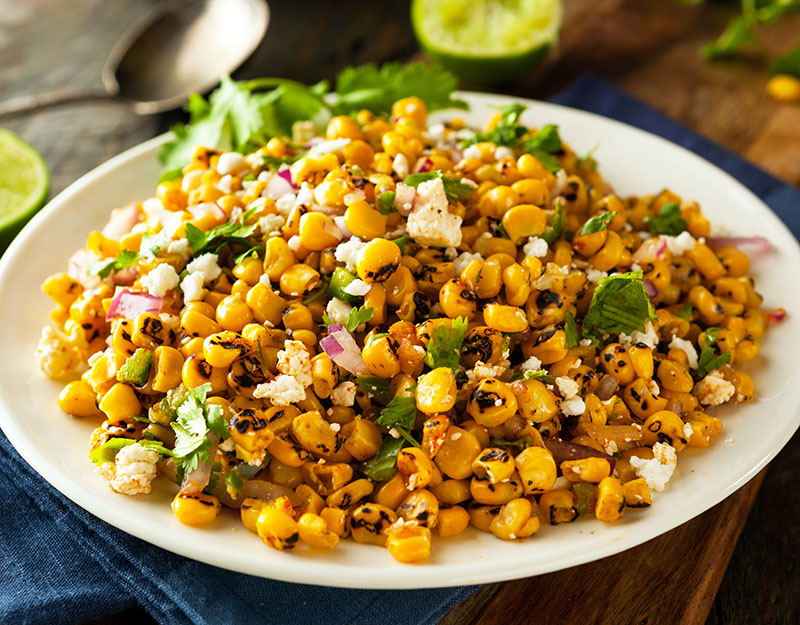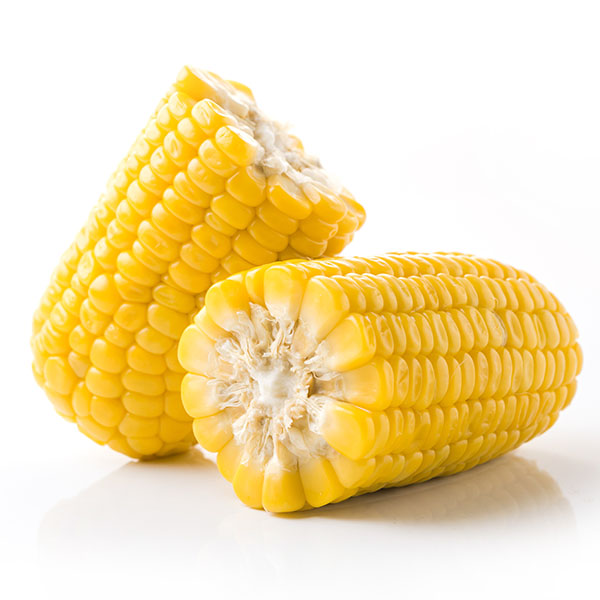For many local shoppers, corn season is the main event of the summer. This sweet and starchy vegetable boasts the ability to keep you feeling full, while brightening up your plate. We’re all ears when it comes to recipes that incorporate this delicious source of potassium and B-vitamins.
Health Factor: Starchy yet Satisfying
Corn is a slow-to-digest carbohydrate, so it’s able to help you feel fuller, longer, while still serving up three grams of fiber per ear. Corn’s fiber content is insoluble, meaning it feeds the good bacteria in your gut – aiding digestion and helping to keep you regular. Incorporating corn and other carbs into your diet more often allows you to nourish yourself without skyrocketing blood sugar levels. This in turn can help with weight loss, regulating blood pressure, and improving overall heart health.
Corn kernels are also packed with multiple B-vitamins, specifically folic acid (vitamin B9), which is important for pregnant women. The vitamin B complex helps expectant or soon-to-be expecting mothers alleviate some pregnancy symptoms, as well as minimize the risk of birth defects.

Versatility: It’s A-maize-ing
Those who can barely wait for corn to be in season are perfectly happy to have this starchy veggie on its own for a side dish – either steamed or grilled. The sweet kernels can also be a key ingredient in introducing new flavor and color to a summertime salad. Pair it with other fresh produce, nutrient-dense herbs and greens, and your favorite light vinaigrette dressing to truly savor the season.
Use fresh corn to elevate your favorite corn chowder or corn bread recipe on a night when the temperature dips. Mix corn with beans, peppers, and ripe avocados for a fan-favorite Texas caviar. You can enjoy it on a tortilla, atop a salad, or beside your favorite Mexican dish.
 Picking the Perfect Ear
Picking the Perfect Ear
A word to the wise: peeling back a husk to check out those kernels while you’re still in the produce section may be considered bad form. Instead, look for husks that are bright green in color and tightly wrapped against the cob. Tassels should be brown and almost waxy to touch, not dry and brittle.
If you’re not going to eat fresh corn right away, get it straight into the fridge for storage. Sitting out in the heat can make kernels starchier, and rather than ripening, the corn will eventually just go bad.
Peak Season: Late Summer
A summer crop that thrives on long, sunny days – corn kernels don’t transplant well and are sensitive to frost. It’s safe to say that Western New York’s extended winters sets us back a bit when it comes to peak corn season. The beginning of July is still considered “early” for local corn farmers, who need moist, rich soil to harvest a near-perfect corn crop later in the summer.



 Picking the Perfect Ear
Picking the Perfect Ear